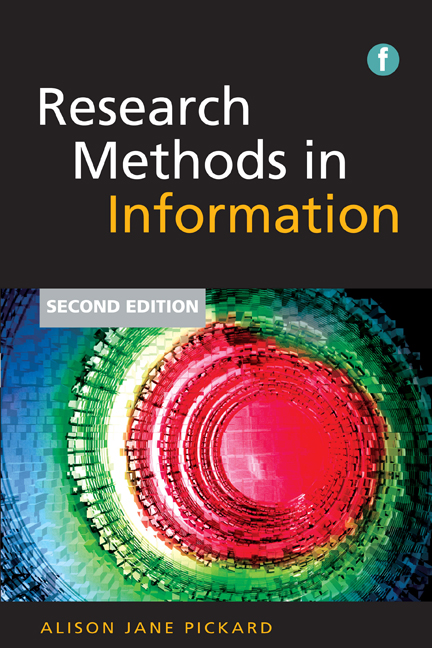Book contents
- Frontmatter
- Contents
- Preface to the second edition
- Acknowledgements
- Introduction
- Part 1 Starting the research process
- Part 2 Research methods
- 8 Case studies
- 9 Surveys
- 10 Experimental research
- 11 Usability testing
- 12 Ethnography
- 13 Delphi study
- 14 Action research
- 15 Historical research
- 16 Grounded theory: method or analysis?
- Part 3 Data collection techniques
- Part 4 Data analysis and research presentation
- Part 5 Glossary and references
- Index
8 - Case studies
from Part 2 - Research methods
Published online by Cambridge University Press: 08 June 2018
- Frontmatter
- Contents
- Preface to the second edition
- Acknowledgements
- Introduction
- Part 1 Starting the research process
- Part 2 Research methods
- 8 Case studies
- 9 Surveys
- 10 Experimental research
- 11 Usability testing
- 12 Ethnography
- 13 Delphi study
- 14 Action research
- 15 Historical research
- 16 Grounded theory: method or analysis?
- Part 3 Data collection techniques
- Part 4 Data analysis and research presentation
- Part 5 Glossary and references
- Index
Summary
The case study method is a kind of research that concentrates on one thing, looking at it in detail, not seeking to generalise from it. When you do a case study you are interested in that thing in itself, as a whole.
(Thomas, 2011, 3)Introduction
Case studies are not as simple to define as many other research methods, because of the nature and form of the method. A case study can be both the process engaged in to investigate a phenomenon and the written output of that investigation. The study is both the fieldwork and the report of that fieldwork. Leaving aside the written output for now, we shall focus on the method of investigation. The most commonly applied definition of case study research is provided by Yin, who defines it as: ‘an empirical inquiry that investigates a contemporary phenomenon within its real-life context; when the boundaries between phenomenon and context are not clearly evident; and in which multiple sources of evidence are used’ (Yin, 2008, 23).
Although you will find this definition is the one most often used by authors discussing case studies, you must remember that many case study researchers claim Yin takes a rather positivist approach to the case study method, and that a case study can be either qualitative or quantitative depending on what it is you are investigating and how you can acquire knowledge of the case.
Case study research is a method designed to study the particular within context and has a very specific purpose. The term has been used very broadly to cover a far wider remit than is appropriate: ‘The case study has unfortunately been used as a “catch-all” category for anything that does not fit into experimental, survey or historical methods. The term has also been used loosely as a synonym for ethnography, participant observation, naturalist inquiry and fieldwork’ (Burns, 2000, 458).
It is not surprising then that definitions of ‘case study’ have become rather blurred. A case study should be a study of ‘a functioning specific’ (Stake, 1994, 236). That is to say, a system that operates within well defined boundaries; the size and nature of that system are not the issue – what dictates the case is the purpose of the investigation.
- Type
- Chapter
- Information
- Research Methods in Information , pp. 101 - 110Publisher: FacetPrint publication year: 2013



